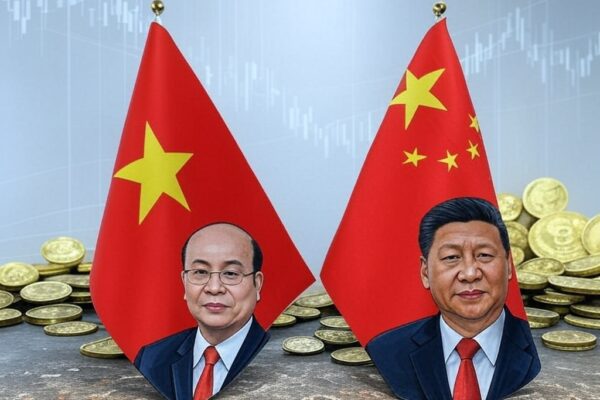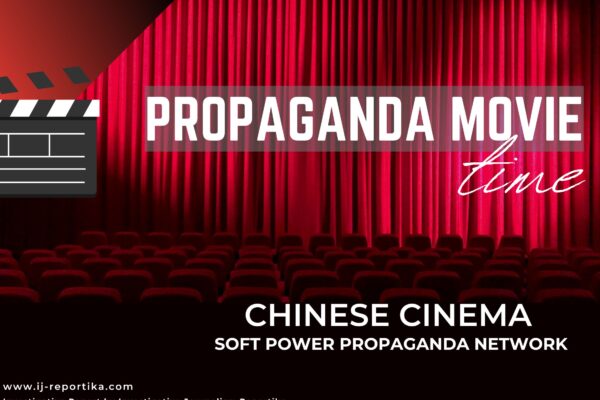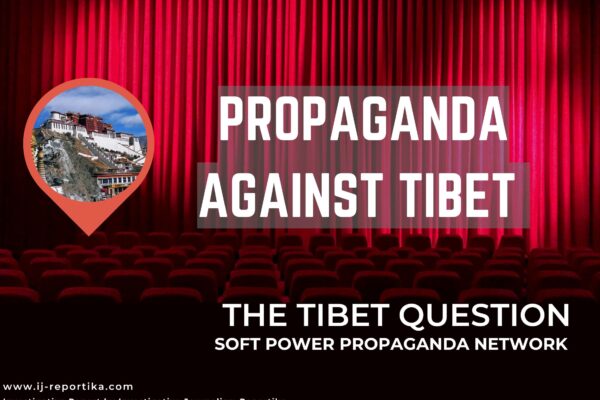Chinese cinema serves as a potent tool for extending Chinese Communist Party (CCP) propaganda, promoting narratives that align with the party’s vision across various genres. Here are some examples of best Chinese propaganda movies: The Founding of a Republic (2009) This series dramatizes the events leading to the establishment of the People’s Republic of China in 1949. It highlights Mao Zedong’s leadership and the CCP’s victory over the Nationalists, emphasizing the legitimacy of the current regime. The Founding of a Republic dramatizes the events leading to the establishment of the People’s Republic of China in 1949, presenting the rise of the Chinese Communist Party as a heroic and inevitable triumph. The film seeks to highlight the historical struggle for democracy but offers a revisionist theme, framing the CCP’s ascent as a natural and just outcome of the nation’s history. Despite this, the film has been critiqued for being more of a historical romp rather than a disciplined treatment of the subject, as noted by G and M.E. Davies. The former editor of the Southern Weekend, Chiang Ping, remarked that the film underscores the limits of the contemporary Party-guided commercial repackaging of Chinese history. The impact of the film was significant enough that Douban, a Chinese film rating site, eventually disabled the rating feature for it and the other films in the trilogy. In response to some international reactions, co-director Huang Jianxin defended the film, stating, it’s unfair to describe The Founding of a Republic as propaganda since modern Chinese audiences are too sophisticated to swallow a simplistic rendering of history. International Reach: The movie has been strategically showcased at various international film festivals and cultural events as part of China’s broader propaganda efforts to influence foreign audiences. Notably, the film earned significant revenue internationally, grossing $1,035,741 worldwide, with substantial earnings in Hong Kong, New Zealand, and Thailand. It was prominently featured at the Chinese Film Festival in Pakistan, held at the Pakistan National Council of Arts (PNCA), among other global venues. Additionally, the film is available on Amazon Prime in select locations and YouTube with English subtitles/audio, where it has garnered over 260,000 views since August 30, 2021. Despite YouTube being banned in China, this substantial viewership from international audiences underscores the attempts to project the state-sanctioned narratives beyond China’s borders The Founding of a Party It is a Chinese propaganda film released in 2011 to commemorate the 90th anniversary of the Chinese Communist Party (CCP). The film was produced by the state-owned China Film Group and aims to depict the early formation of the CCP. Starting with the fall of the Qing Dynasty in 1911 and concluding with the Party’s founding congress in 1921, the film portrays the struggle and rise of the CCP as a response to the socio-political challenges of the time. While the film attempts to present a narrative of ideological commitment and revolutionary fervor, it is widely recognized as a state-sponsored effort to reinforce the legitimacy and historical significance of the CCP. The film’s romanticized portrayal of figures like a young Mao Zedong aligns with its propagandistic goals, aiming to evoke patriotic sentiments and support for the Party among its domestic audience. International Reach: “The Founding of a Party,” internationally released as “Beginning of the Great Revival,” exemplifies China’s use of cinema as a propaganda tool to shape foreign perceptions of the Chinese Communist Party’s history. Unlike its prequel, “The Founding of a Republic,” this film was dubbed in multiple languages, including Japanese, French, Russian, and English, to ensure a broader international reach. Screened in over 10 countries, including the U.S., Canada, and Australia, it grossed $58,320,429 worldwide. The film was strategically promoted to international audiences, featured at the China Image Film Festival in Europe, where it received The Committee Special Awards. Its multilingual availability and different international cut underscore China’s efforts to influence global audiences more effectively than its predecessor, projecting a state-approved narrative through carefully curated cinematic experiences. The Founding of an Army (2017) It is the third installment in what can be humorously dubbed the People’s Republic of China Cinematic Universe (PRCCU), following The Founding of a Party and The Founding of a Republic. Directed by Andrew Lau and backed by an astonishing forty-six credited producers, the film is a state-sanctioned, star-studded epic commemorating the 90th anniversary of the founding of the People’s Liberation Army. Despite its attempts to attract a younger audience by featuring teen idols, the film remains largely a propaganda piece, with a polished narrative that highlights Mao Zedong’s leadership while portraying Chiang Kai-shek as a short-sighted antagonist. The film does include two notable battle scenes that add to its visual appeal, though overall, it continues the trend of its predecessors in presenting a highly stylized and idealized version of history. International Reach: Unlike its predecessors, this film was strategically released in Southeast Asia, targeting audiences in Malaysia, Brunei Darussalam, and Estonia before being showcased at the ASEAN international film exhibit. Grossing $60,600,361 worldwide, the film serves as a vehicle for the Chinese government to project its narrative beyond its borders. “The Founding of an Army” underscores China’s ongoing efforts to shape foreign perceptions of its military history and bolster its soft power in strategically important areas. Wolf Warrior (2015) and Wolf Warrior 2 (2017) The Wolf Warrior series, comprising Wolf Warrior (2015) and Wolf Warrior 2 (2017), exemplifies Chinese cinema’s role in advancing CCP propaganda. These films follow Leng Feng, a Chinese special forces operative, as he battles foreign mercenaries who threaten China’s sovereignty and global interests. Wolf Warrior emphasizes the discipline and heroism of the Chinese military, contrasting it with the ruthless, morally corrupt foreign adversaries, thereby promoting a narrative of national pride and military strength. International Reach: “Wolf Warrior” (2015) was strategically marketed and released on a large scale for international audiences. The film is available on prominent streaming platforms like Apple TV, Amazon Prime, Peacock Premium, and many others, ensuring widespread accessibility. Released in both Mandarin and English, it grossed a substantial $81,411,331 worldwide,…











